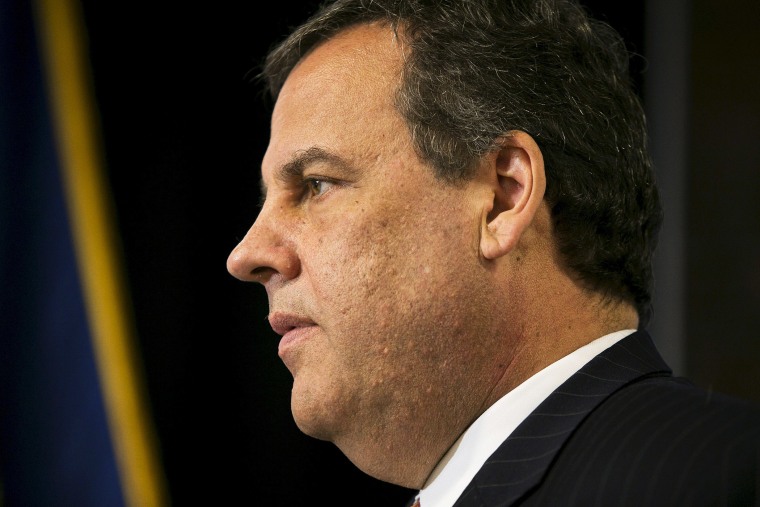New Jersey Gov. Chris Christie is changing his tune on providing a pathway to citizenship for undocumented immigrants living in the U.S.
The likely Republican presidential candidate — who in 2010 urged President Obama and lawmakers to “put forward a commonsense path to citizenship” — told Fox News’ Megyn Kelly on Monday night that such a pathway is an “extreme way to go.”
Christie acknowledged during the interview on Monday that his views have shifted. "I think I've learned over time about this issue and have done a lot more work on it," he said, adding, “Back in 2010, I was in my first couple of months as governor. I’ve now learned some of the ramifications of some of these things and what I am saying now is we’ve got to come up with a solution for it.”
RELATED: Nationwide protests planned for immigrant rights
He added, “And I think that quite, frankly, what Hillary Clinton’s doing right now is pandering. That’s pandering. We need to have an intelligent conversation about this and bring the American people along to where we can find consensus.”
Earlier this month, Clinton, who is seeking the Democratic presidential nomination, made her strongest call yet for a full path to citizenship for undocumented immigrants, accusing Republicans of creating a “second class” status when they stop short of that.
He continued, “Just immediately going to a path to citizenship — as Hillary Clinton is proposing to do, is just pandering. It's politics. It’s not based upon an educated study of the issue.”
Kelly pointed out that, as governor, Christie was initially against, but then approved, a bill in 2013 providing in-state tuition for illegal immigrants. The GOPer said he backed the legislation “because it made economic sense to do it” and his initial reluctance was because the state didn’t have the funds at the time.
Immigration has been a difficult issue for the emerging GOP field, with several declared or potential candidates wanting to garner votes from outside their base, including the rapidly growing Latino population, but also not wanting to alienate those in the GOP who back hard-line immigration policies.
RELATED: Chris Christie: Foreign policy hawk?
Similar to Christie, Wisconsin Gov. Scott Walker said in March that his “view has changed” on immigration and that he now doesn’t back amnesty for undocumented immigrants in the U.S. In 2013, Walker told the editorial board of the Wausau Daily Herald that a pathway to citizenship “makes sense.”
Christie has not laid out a roadmap for what should be done for those people living in the country illegally, but the governor has said he has plans to deliver a speech on immigration in the near future. When asked about immigration in New Hampshire earlier this month, Christie argued that those who are in the country illegally will not “self-deport,” as Mitt Romney suggested in 2012. He has also said there aren’t enough law enforcement resources in the U.S. to “forcibly deport” those who are already here.
Christie — who is in the back of the pack in the emerging GOP field — has said he will make a decision on whether or not he’ll run for president sometime this month or next.
